I’m from here. Well, sort of. When I was 18 months old, we moved to this small town on the Connecticut River, in the shadow of Mt. Ascutney. I grew up here and left when I was 20. I’ve returned to conduct my fieldwork in Vermont because it’s home for me, though I wasn’t born here. The matter of birth means that the way in which I belong is fraught, especially in the eyes of the old-time Vermont community–folks whose families have lived with this land for several hundred years, who understand a “real Vermonter” in part by family association with particular places, dairy farms, forests, livelihoods.
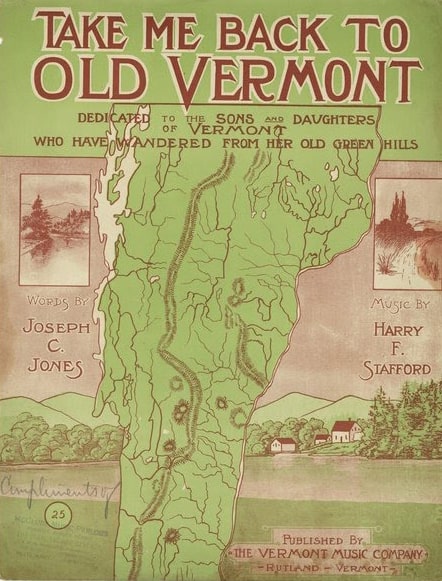 I feel a deep affinity to this place, especially to Mt. Ascutney. It helped to raise me, as much as the hemlock grove where I built structures for woodland creatures, as much as the stream where my father hung a cup so we could drink when we passed, as much as the small community who welcomed my parents—over and over again—and now welcome me home. I belong here—I’m from here.
I feel a deep affinity to this place, especially to Mt. Ascutney. It helped to raise me, as much as the hemlock grove where I built structures for woodland creatures, as much as the stream where my father hung a cup so we could drink when we passed, as much as the small community who welcomed my parents—over and over again—and now welcome me home. I belong here—I’m from here.
Well, sort of. My ancestors are Scottish and German—my mother’s side of the family did a back and forth dance with Scotland in the last decades of the 19th century. The men on my father’s side came from Bavaria, seemingly went straight to the west coast, and stayed there. So the way that I belong to this place, belong in this place, is not related to ancestral stories of dwelling with these hills and streams. I’m not Wabanaki—the folks for whom this area has been home for thousands of years. For Wabanaki folks, the place I grew up–my childhood mountain, Cas-Cad-Nac, and the river-landing Ascutney, are nestled in the flesh of the larger area of Ndakinna. Still–this is home for me.
Coming home to do research wasn’t my plan. “Home” was everything that had been difficult, boring and small-town—2,000 people or thereabouts. Home was the place from which I was always trying to get “away.”
My secret goal in wanting to become an anthropologist was in order to travel, write, and talk with people in “interesting” places. Presumably that meant “away from home,” and for many years it meant “in Nepal.”

In the first year of my graduate studies, though I suddenly found myself exhausted by the prospect of always being “away.” What emerged out of conversation with colleagues was not only a deep desire to be in the place that raised me, but also to take the analytical and collaborative skills I was gaining as a graduate student and a social justice activist and bring them home to my people. As near as I can tell, my people are the folks of rural central and southeastern Vermont.
Now, you might be wondering why I’m giving you my autobiography in miniature. Isn’t this supposed to be an article about fieldwork, about field notes–about getting down in the nitty and the gritty?
Well yes—it is about those things. And I would be doing you, wherever you are, a disservice if I tried to discuss fieldwork, methods, and what exactly the nitty-gritty looks like for me if I didn’t make it clear where I’m coming from, and how I got here.
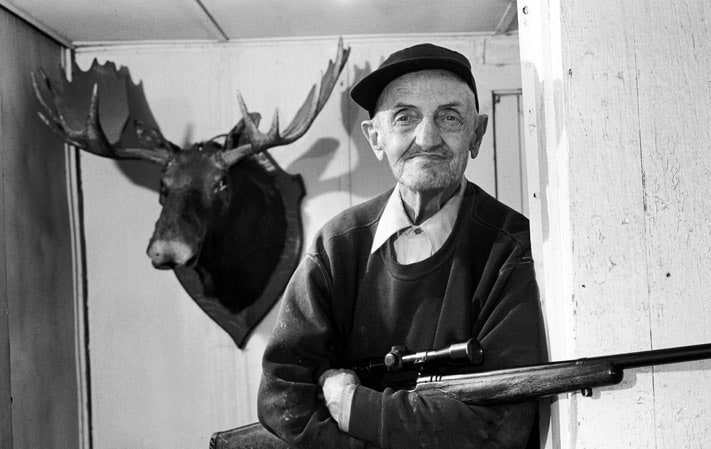
My musings in this piece on fieldwork, field notes and methods spring out of my ongoing doctoral dissertation fieldwork. For one segment of my fieldwork, I work with folks involved in the Transition Towns movement in southern Vermont and in New England. The other segment of my fieldwork involves studying herbal medicine education practices in Vermont. Each of these sections is guided by my commitment to engaged anthropology–I am aligned in meaningful practical ways with my interlocutors. And the research overall is guided by a key question—how are people preparing for what they (what we) understand is a future shaped by, and threatened by, climate change and economic instability? Based on my bumblings around trying to address these questions, I’ll share here some thoughts on the matter of anthropology in the home place, and the sticky matter of commitment and distraction when one “works” “at home.”
Notes from the Field
 …When we were inside all the time, all my class notes were all my fieldnotes—I record my learnings as an herbalist, allowing myself permission to go back over them later as a scholar. Now that we’re spending, as of early May, significant time outside in the gardens, it is more difficult to get a sense of what is going on just from my written class notes…the faculty encourages us to learn with our bodies in the garden, and discourages the use of written notes. This is I believe a beautiful thing—a clearly articulated push for experience as education, for listening with our whole selves, or at least that’s how I receive it. At the same time it means that memories of those outside in the garden classes are a bit hazy.
…When we were inside all the time, all my class notes were all my fieldnotes—I record my learnings as an herbalist, allowing myself permission to go back over them later as a scholar. Now that we’re spending, as of early May, significant time outside in the gardens, it is more difficult to get a sense of what is going on just from my written class notes…the faculty encourages us to learn with our bodies in the garden, and discourages the use of written notes. This is I believe a beautiful thing—a clearly articulated push for experience as education, for listening with our whole selves, or at least that’s how I receive it. At the same time it means that memories of those outside in the garden classes are a bit hazy.
Things I remember vividly are tasting plants with [one teacher] who mentions…to watch out for the Asteraceae plant family, that we don’t want to go tasting those ones willy nilly. But on our first forest walk on [that] property, when I saw partridgeberry and thought it was wintergreen, we all tasted a little bit of it—bitter! dry!—and then talked about it. We then went to a little bitty patch of wintergreen which looks like partridgeberry, and we tasted that, and oohed and aahed. It tasted like wintergreen.
….Each day in the garden, we begin with 15 minutes of centering time, to bring ourselves down to plant speed as they say. We connect with the place we are, with the land we’re on, with the spirit and heart of that place. Today I found a spot to sit on beside a large bush…and I got down with the plants at face level, feeling for the wind on my skin and the sun warming the dirt around me. My classmates wander off to find their own spots, seated or crouched or standing, near maple or hawthorn trees or in open grass near dandelions and burdock or right by the oak. One teacher told us about the spirit of the tree in the middle of the managed meadow, which is part of the anchor of the spirit of that place. Another day, a different teacher spoke of the water-energy lines…which crisscross part of that garden. There are stones marking the crossing of those lines… When we sit in that garden, we’re encouraged to find a particular plant and hang out with it for our 15 minutes, listening for what it might have to share with us. I sit with wormwood—having sought angelica, and not finding it—and think about the kinds of protection plants can give us, as both of those plants are said to be protectors of the spirit…. (FN April & May 2014)
Anthropology, like any science or art, implies commitment. When we direct our attention towards certain literatures; when we put a finger on the map of the world and “choose” a field site; when we cycle back through the
question of our own sanity for getting into this academic thing–each moment is shaped, iteratively, by commitment.
 In research as in relationships, commitment must be a daily practice. And that practice is a bodily one, involving our fleshly selves. In fieldwork, I ask myself “where do I go today? What will I bring with me? What am I looking for? How do I inhabit my body to encourage its keen observational capacity, to embody a gentle, unassuming presence?” Commitment must be a daily practice of the body. My thinking about what that bodily practice feels like and does has been shaped by my work as an activist, and my research with activist communities. As I’ve pointed out elsewhere, both ethnography and activism are practices. This is true both in the sense that they are processual, emergent, and unpredictable, and in the sense that both require literal practice to become any good at them.
In research as in relationships, commitment must be a daily practice. And that practice is a bodily one, involving our fleshly selves. In fieldwork, I ask myself “where do I go today? What will I bring with me? What am I looking for? How do I inhabit my body to encourage its keen observational capacity, to embody a gentle, unassuming presence?” Commitment must be a daily practice of the body. My thinking about what that bodily practice feels like and does has been shaped by my work as an activist, and my research with activist communities. As I’ve pointed out elsewhere, both ethnography and activism are practices. This is true both in the sense that they are processual, emergent, and unpredictable, and in the sense that both require literal practice to become any good at them.
Fieldwork is no routine, predictable job. Nor is the labor of making field-notes, whether written, audio, or visual. Though many of us strive to create routine out of the morass we face when waking up “in the field” every day, it is sometimes insufficient to the task of ordering a life. Which is one thing we’re trying to do in fieldwork—order our lives appropriately to the various methods and ends of our reason for being wherever we are.
I find myself routinely thrown up against this, my sense of the daily creative labor that is commitment. That one word, “various,” is key to the entanglements of fieldwork. Though we go “to the field” with the primary purpose of conducting research and producing academic knowledge, we are not automatons, and none of us will spend all 24 hours a day—and probably nowhere close to 9—“working” in that sense of the word. We are also living.
 To the end of helping myself practice living-my-life as well as doing-my-research, I’ve had to fiddle around with thinking about methods, and thinking about taking notes. As I mention in the fieldwork excerpt above, taking notes in my “herb school” class itself is a totally normal thing to do, and I can allow myself to slip fully into herbalist-in-training mode as I’m typing away at graduate student speed.
To the end of helping myself practice living-my-life as well as doing-my-research, I’ve had to fiddle around with thinking about methods, and thinking about taking notes. As I mention in the fieldwork excerpt above, taking notes in my “herb school” class itself is a totally normal thing to do, and I can allow myself to slip fully into herbalist-in-training mode as I’m typing away at graduate student speed.
Outside of the classroom, though, how am I recording and annotating my experiences? How do I carry understandings in a manner that lends itself not only to practice as an herbalist, but also to analytical interrogation? Is it enough for the academic world that I am getting this knowledge into my body, and noting that it is coming in? I suspect not. For all the anthropology that tries to dismantle expert knowledge, that advocates the relevance of embodied experience to life-in-the-world, we academics still live in the paradigm of the written word.
The dilemma of how to translate, approximate, or externalize what are interactive, embodied processes will remain a sticky one. The work of scholars who attempt to re-think what “counts” as fieldwork and who gets to theorize has been useful to shore up my thinking as I move forward. Bill Maurer suggests we think of working “lateral” to our interlocutors as a way of shifting our perspective on who is on top, so to speak, of the knowledge we seek. Lateralness indicates neither a “studying up” of experts nor a “studying down” of…everyone else. I take into consideration Maurer’s “lateral work” alongside Sherry Ortner’s 2010 notion of “studying sideways, which recognizes the relative complicity between us and our informants (sic)…” (2010:223). I’m informed by George Marcus’s take on “epistemic partnership” (2008: 83) created in part through the fomentation of “para-sites.”
…para-sites enlist collaborations with subjects who, in their own context of everyday practices, display analytic interest and conceptual curiosity that evoke the ethnographer’s mode of thought…[who] therefore may be open to risking interpretations together with the researcher …. (2011:52)
Where I diverge from Marcus is that, while his “para-sites” have been designed to work especially with expert-knowers of various sorts, I work instead with people who might eschew the “expert” label. My interlocutors who teach at the herb school are indeed “expert” in the sense of possessing an impressive compendium of useful and desire-able knowledge; my interlocutors in Transition Towns may be experts in some capacity, but they do not necessarily bring that attitude to the organizing table. Instead, most of my interlocutors aim at horizontalizing knowledge production while simultaneously acknowledging that the epistemological and experiential dimensions of much of the contemporary world mean that “experts” are, structurally if not actually, the ones who “can be trusted.”
Following the insights constructed along with my interlocutors about the “toxic” nature of a world that assumes that only people with degrees can know things, and that only the written word is what matters, I re-shape my own practices. I get less good at taking explicit written fieldnotes after outdoors, experiential classes. I start to feel into, rather than think about, my experiences of the day. At first, I did this unthinkingly–part of a visceral, positive reaction to the embodied learning we do. Now, I do it self-consciously, and am trying to make a method of it. How do I leave herb school feeling? What parts of my body are woken up, enlivened, ready to go? What do I find myself wanting—or not wanting? One thing I find myself not wanting at all is frequently the cyclical work of writing fieldnotes. I resist the idea that fieldnotes must come out of our analytical brains. What it means to remember and record bits of information is contested territory. Marcus suggests that
engaging in such collaborative speculative thinking with research subjects in the thick of ongoing fieldwork can help rescue the stuff of interpretation from the grind of communal norms (to which political and legal institutions, especially, are dedicated) or dissipation by the tone of ethical distance in anthropological write-ups. (2011:52)
The point is well taken. What kinds of communal norms have I absorbed around the practices (and perils) of fieldnotes that make me think that the only possible way to record, remember, and carry onwards is explicitly in written form? This is as much a problem of dominant white western culture as it is of anthropology–here, though, it is a problem of the anthropologist.
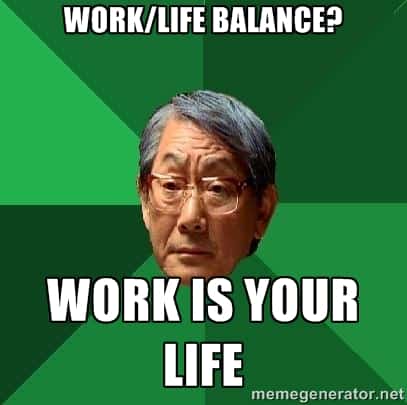 There emerges a tension in my field-life between my duty and responsibility as an ethnographer to, on the one hand, pay attention to the right things—to try to be in the right places—to remember the things that I think are important. On the other hand, we have my love, affection, and personal, lifelong commitment to the community ties I have here, with my old friends, with family, with herbalists and with community organizers alike. On any given day, to which should I devote my attention? Is it possible to split my attention effectively, in the short or the long term, across these commitments, and what does this do to the process of recording my life as a fieldworker?
There emerges a tension in my field-life between my duty and responsibility as an ethnographer to, on the one hand, pay attention to the right things—to try to be in the right places—to remember the things that I think are important. On the other hand, we have my love, affection, and personal, lifelong commitment to the community ties I have here, with my old friends, with family, with herbalists and with community organizers alike. On any given day, to which should I devote my attention? Is it possible to split my attention effectively, in the short or the long term, across these commitments, and what does this do to the process of recording my life as a fieldworker?
On that last question, I can say so far that, at a day-to-day level, it is not possible to split my attention. When I am in Fieldwork Brain as an Ethnographer, that is where my head is fully occupied—and if I bring that brain to a dinner with friends, or even fully to the herbal classroom, the bodily sensations that arise are nearly unbearable. Suddenly my relationships with my friends, or with the process of becoming an herbalist, become utilitarian, a means to the grand end of My Dissertation.
I start to feel like a spy. I find myself dwelling completely in one space or another so that the identities (or perhaps the different kinds of labor and attention) won’t get confused. Here’s another excerpt from recent fieldnotes. A fellow student and I talked about transformative experiences with plants at lunchtime a few weeks ago:
…She then asked me if I was going to write that all down—and I said, to be honest, I often forget that I’m a researcher, because I’m …into this first and foremost as an herbalist. Is it the kind of thing you would mind having written down? She shrugged and said “it’s ok, whatever.” And the tone of our conversation shifted as she began asking more about my research….(FN May 2014)
That sense that I am a spy sits in the pit of my stomach, rises to my throat, and makes me feel quite ill. I decide that I need my Ethnographer to be something I can turn off at will. Not that I decided I shouldn’t notice things—clearly, I noticed the above conversation though The Ethnographer was, up to that point, off! Rather, I decided not to hold myself to the standard of academic culture that When In The Field, Everything Is Work. And once the Ethnographer is off (or on), it is important that I stay in that mode for a while—the mental whiplash of switching modes is too intense to do it often.
A bodily commitment to fieldwork at home entails becoming fluent in shifting between modes such that I can produce knowledge for academic and activist cultures as well as being fully myself–feeling at home when I’m at home. It’s a commitment to not losing my sense of belonging in favor of a false ideology of objectivity. That ideology tells us, over and over, that “going native” is inappropriate for ethnographers.
Is “going native” anything other than letting go of our specific agendas, simply feeling like we belong?
Works Cited
Deeb, H. N. and G. Marcus. 2011. “In the Green Room: An Experiment in Ethnographic Method at the WTO.” Political and Legal Anthropology Review, Vol. 34, Number 1, pps. 51–76.
Di Chiro, G. 1997. “Local Actions, Global Visions: Remaking Environmental Expertise,” FRONTIERS. BOULDER- 18(2): 203–231. —2000. “Bearing Witness or Taking Action?: Toxic Tourism and Environmental Justice.” Reclaiming the Environmental Debate: The Politics of Health in a Toxic Culture: 275–300.
Holmes, D. and G. Marcus. 2008. Collaboration Today and the Re-Imagination of the Classic Scene of Fieldwork Encounter. Collaborative Anthropologies 1:81–101.
Fortun, K. 2012. “Ethnography in Late Industrialism.” CULTURAL ANTHROPOLOGY, Vol. 27, Issue 3, pp. 446–464.
Maurer, William M. 2005. Mutual life, limited: Islamic banking, alternative currencies, lateral reason. Princeton, NJ: Princeton University Press.
Ortner, S. 2010. “Access: Reflections on studying up in Hollywood.” Ethnography 11: 211
Povinelli, E. 2006. The Empire of Love: Toward a theory of intimacy, genealogy and carnality. Duke University Press. Durham, NC.
Raffles, H. “Intimate Knowledge.” 2002. UNESCO. Blackwell Publishers.

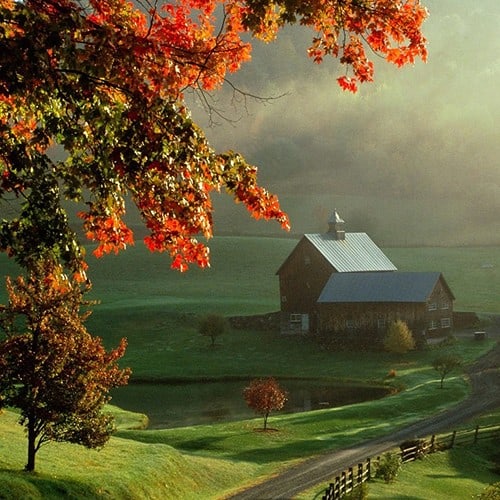
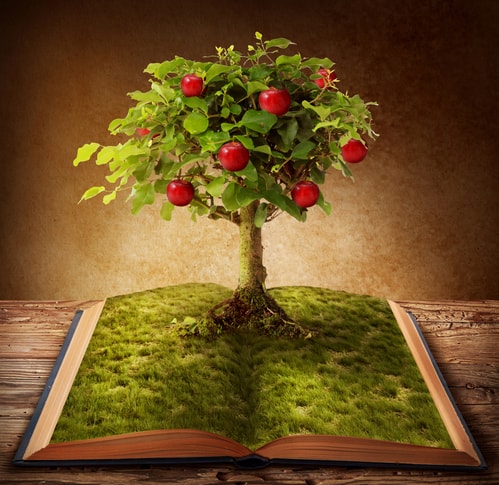
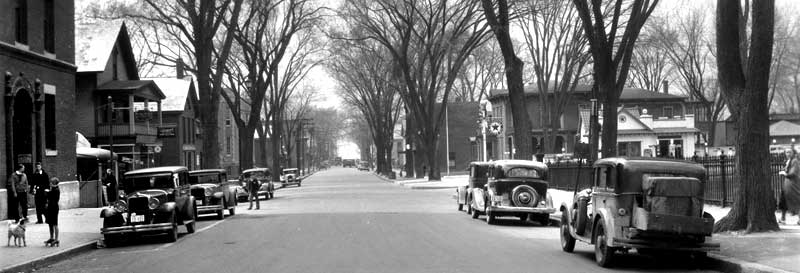



As an artist and a “feeling” person involved in experimental art-making projects which require a certain amount of meta-cognition to navigate to a satisfactory conclusion, I loved this beautifully written article by Charis Boke. And I am glad to know that the doctoral dissertation Charis is creating allows for her to bring her whole self – body, mind, heart- to the process. More from her, please!
Fascinating and beautifully written. I was wondering, though, if it’s overly simplifying the situation to view it as an off/on binary. Fact is, you always are an ethnographer, and one who is struggling to be native and work as an herbalist as well. In that sense, maybe it’s more about holding the two in some kind of tension and living the confluences and contradictions? There is an ethical dilemma too in “going native” which is perhaps lessened by the fact that you are from Vermont to some extent, but in some sense “going native” suggests a problematic identification with those with whom you can never truly identify. Understanding that you are not the people you work with (though, again, it’s not as extreme in your case) and experiencing that discomfort might be an appropriately ethical response to the kinds of power imbalances that we deal with regularly. In that sense – especially for those researchers for whom power between ethnographer and research community is a very real concern – “shutting off” might be a seemingly unproblematic way of avoiding ethical contradiction.
Jeremy–indeed! You get at some of the sticky points I was trying to raise with this discussion. I agree that “shutting off” could produce an ethically problematic situation, and that’s exactly what I struggle with here. Because of the pre-existing depths of my relationships in this place which is my home, and with the subject matter of the research I do, I find that it creates a parallel and structurally similar set of ethical dilemmas when I do *not*–sometimes, at least–check my ethnographic hat at the door of some of the situations I am in. I have no desire to turn my relatives, my long-time friends, into ethnographic subjects–though they may indeed be part of the fabric of my “life in the field.” In some ways, I think about my field research as a job. Sometimes I am at that job, and sometimes I am not.
This is not unlike the way that, for instance, medical anthropology, or the anthropology of finance institutions, or of other expert cultures is conducted, to my understanding. Though there may be times when the lawyer leaves UNHCR to go out for lunch with the ethnographer, the space of action of the research is still bound up with the particular site (perhaps an office building, or a prison, or a hospital). The contours of “the field” have changed dramatically for all of us in the last 30 years especially, and especially with the rise of complex telecommunication spaces.
Here, I’m not suggesting we should let go of our ethical commitments as ethnographers–quite the contrary. I’m trying to figure out what it means to let go of the pathological need to be working all the time, because none of us can do that anyway, and how to let it go in a way that is true to the relationships I have with the place I live, and with the kind of research I do. Thanks for your comment–this is the kind of discussion I hoped would be forthcoming from the article! Apologies for my longwinded response…